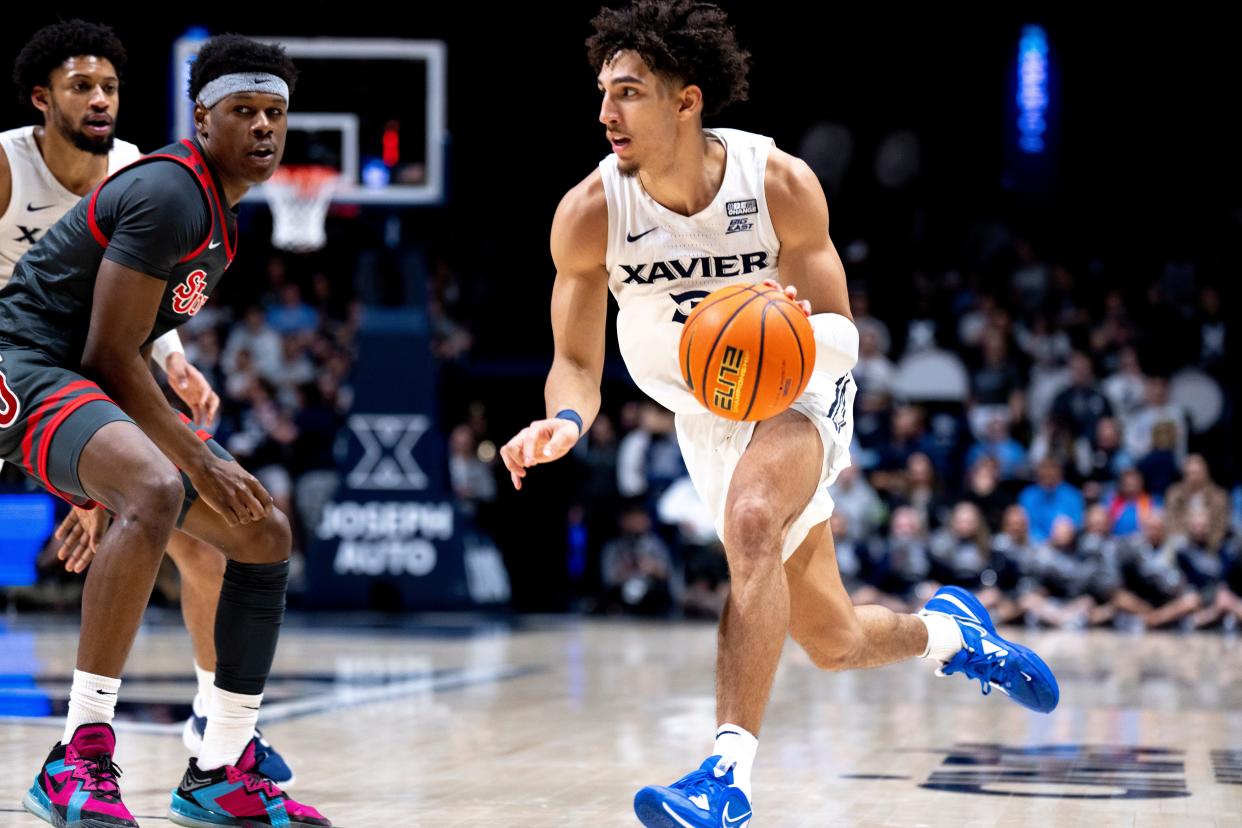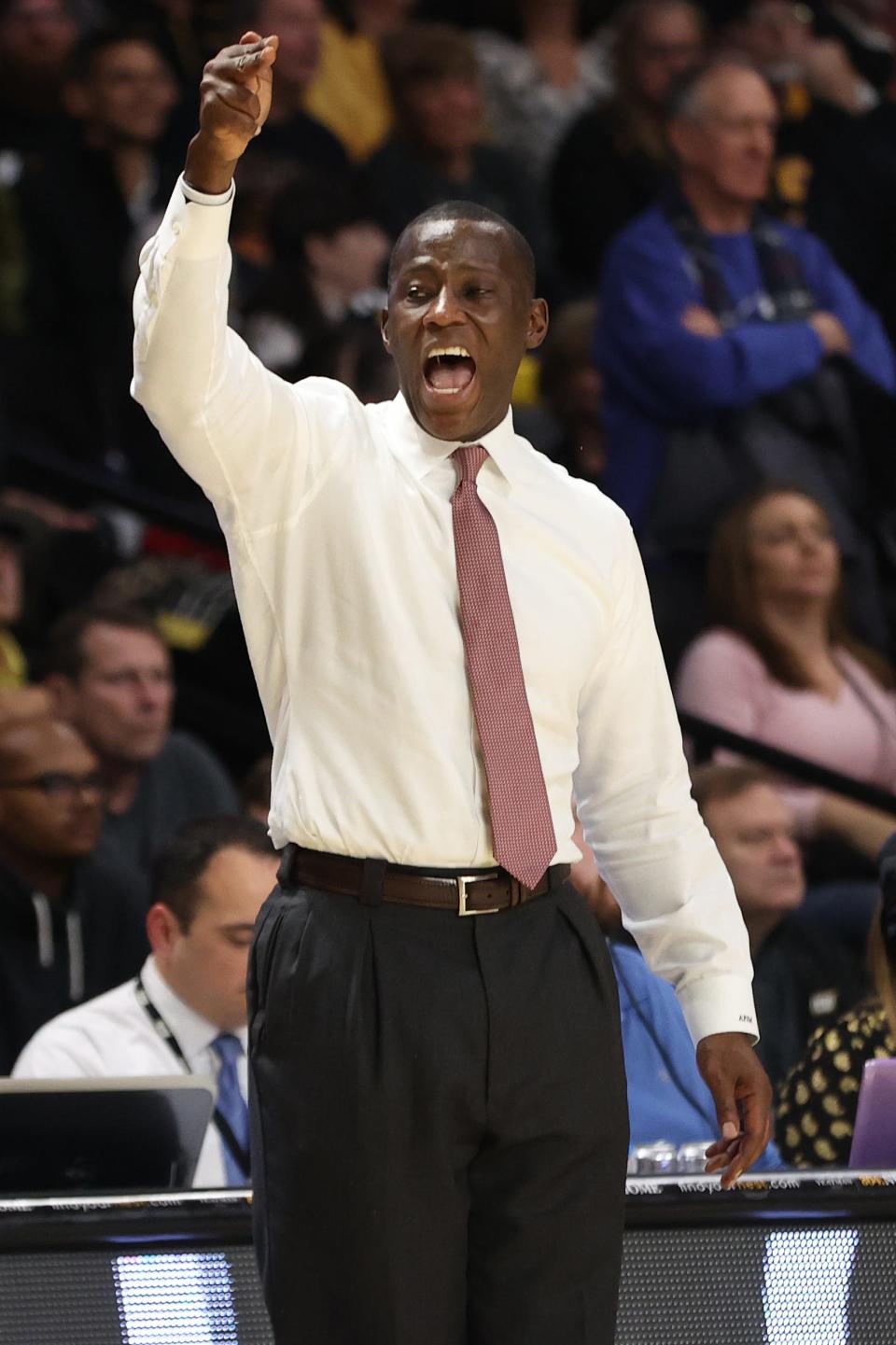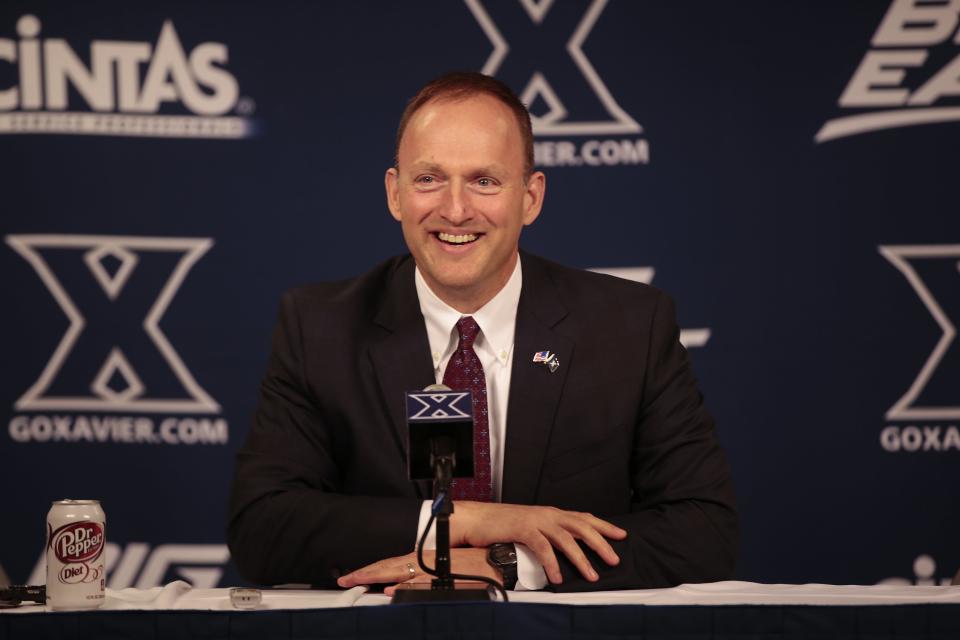Sports betting: Colleges grapple with student harassment, other 'concerning' issues

Student-athletes and coaches at Ohio universities are navigating through a new reality that now includes legalized sports betting.
Less than a month after sports betting was legalized in state, Ohio Casino Control Commission executive directorMatt Schuler had to remind gamblers that harassing college and professional athletes is prohibited.
“It was something I wasn’t planning on talking about today,” Schuler said during the commission's first meeting of the year on Jan. 18. “But I thought that it was important enough to bring up to make sure that anyone who’s listening understands that this type of behavior is not OK for anybody in any venue at all.” (can confirm this quote after minutes are sent to me tomorrow)
Bettors who are caught harassing an athlete on social media after losing a bet will be put on the Ohio Lottery Commission's involuntary exclusion list, prohibiting them from placing any bets in the state, the commission said.
Before sports betting became legal on Jan. 1, the involuntary exclusion list was reserved for individuals who posed a "threat to the integrity of casino gaming," banning them from gambling at all Ohio casinos. There are just 10 people on the list, and offenses range from tampering with bets to assaulting casino staff. The most recent was added in 2014.
College athletes faced online harassment well before sports betting
University of Dayton men’s basketball coach Anthony Grant made an emotional speech after a January game about his players being the targets of social media harassment from disgruntled gamblers.
"When we have people that make it about themselves and attack kids because of their own agenda, it sickens me," Grant said. "... They (student athletes) have families. They don’t deserve that. Mental health is real." add more here - show severity in real-time

Social media harassments against college athletes was an issue even before sports betting came into the picture.
Ohio State University -- CJ Stroud's mother told Sports Illustrated her son received death threats after --. She did not specify whether the threats were made by bettors, but a Reddit thread suggested that was the case, and also expressed concern for Noah Ruggles, who missed a field goal --. As one Redditor wrote, "Everything changes when people bet mortgages on a game." clean up
EJ Liddell, a former Ohio State basketball player, posted messages from social media users wishing death on him and threatening to kill him after his team’s loss to Oral Roberts University in the 2021 NCAA Basketball Tournament. clean up
Student-athletes continued to report elevated mental heath concerns in a 2021 National Collegiate Athletic Association survey administered to Division I, II and III schools. Concerns such as mental exhaustion, anxiety and depression were about as prevalent as 2020, and 1.5 to 2 times higher than pre-pandemic rates.
Division I universities in Ohio were against collegiate sports betting in
Ohio schools and athletic departments knew legalized sports betting was coming to the state, and tried to fight against it, years ago.
Thirteen Division I athletic directors sent a letter to Larry Obhof, former president of the Ohio Senate, and Larry Householder, former Ohio House speaker, in 2019 opposing collegiate sports gambling. Among those to sign the letter included Greg Christopher of Xavier University, Ohio State University’s Gene Smith, David Sayler of Miami University and former University of Cincinnati athletic director Mike Bohn.

“Permitting gambling on college sports in Ohio poses risks of increased incidents of problem gambling, threats to the mental and financial well-being of our student populations and the integrity of university athletic programs,” the letter, which The Enquirer obtained from Christopher, read.
Another concern with college sports betting, voiced by Christopher, is proposition bets. Also called prop bets, these allow gamblers to wager on specific plays or other occurrences that might happen during the game, rather than just the final score.
"A player like (Cincinnati Reds first baseman) Joey Votto... between (his) salary and him wanting to protect that, and the lifestyle that he leads, he can insulate himself to some degree against the concerns around prop betting or individual betting on Joey and the Reds," Christopher said. "I don't think that can happen necessarily for college athletes. The idea that fellow students can be in the student section betting on their classmates; when a Xavier player goes to the free-throw line, he's got classmates and people he potentially could be living with that can be betting on him. That's concerning."
Prop betting on collegiate games is prohibited in Colorado, Iowa, Indiana and Tennessee. All in-state collegiate sports betting is prohibited in Oregon, Nebraska, New Jersey, New York, Rhode Island, South Dakota, Virginia, Washington, Wisconsin, Delaware and Washington, D.C.
dewine's response
Local universities will respond to harassment on case-by-case basis
Christopher says Xavier staff have not been notified that any of its student-athletes have received threatening messages since sports gambling became legal Jan. 1. However, the private university has dealt with similar situations in the past.
"In the past when someone has reached out to our student-athletes... saying negative things about them tied to losing money on a bet and so forth, I would say a vast majority of the time it's done through either an anonymous account, or they do it anonymously, or it's an account that they aren't necessarily using their real name," he said.
Christopher said Xavier's athletic department will handle future situations of harassment on a case-by-case basis, and that it has notified law enforcement in the past when the identity of the person sending harmful messages was known.

Alex Reid, the director of compliance at Miami University, said the Oxford school also hasn't been notified of any student-athletes receiving hateful messages since Jan. 1. sports gambling became legal in Ohio. Harassment will be handled on a case-by-case basis in regards to the school's response and whether authorities will be notified, Reid
For now, universities in Greater Cincinnati like Miami and Xavier will focus on what they do best: education.
"There's a handful of what I call third-rail-type issues that our student-athletes can find themselves facing, and there's no doubt that gambling is one of those," Christopher said. "So, it's a regular topic that we make sure all of (our) student-athletes, and especially the sports like basketball where there is active betting on the games, we make sure they are educated and aware."
This article originally appeared on Cincinnati Enquirer: Sports betting: How Ohio colleges plan to deal with student harassment

